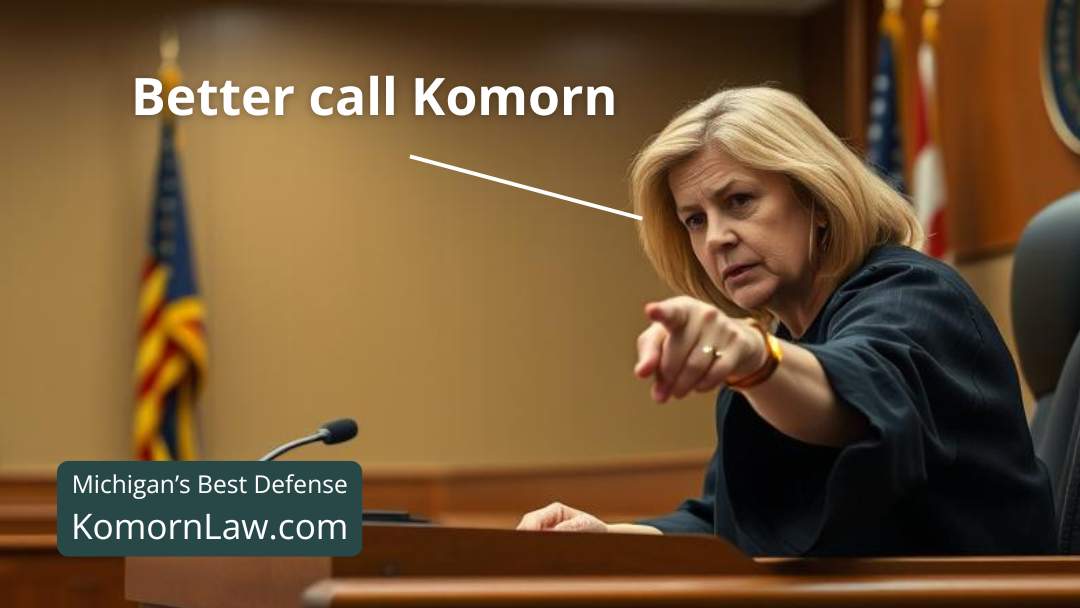Court of Appeals of Michigan
PEOPLE of the State of Michigan, Plaintiff-Appellee, v. Javarian CHANDLER, Defendant-Appellant.
No. 368736
Decided: June 27, 2024
Before: Borrello, P.J., and Swartzle and Young, JJ.
Introduction
In the People v. Chandler case, the Michigan Court of Appeals addressed an important issue related to search and seizure rights.
Background
Javarian Chandler found himself in legal trouble when he was on probation. As a condition of his probation, he had to comply with certain requirements, including submitting to searches of his person, property, and computer without the need for a search warrant. “Defendant’s Acknowledgment” section found on the SCAO, Form MC 243 (Sept 2022), p. 3:
But was this constitutional?
What Happened?
On May 17, 2023, Chandler was among the probationers and parolees on Officer Thomas’ compliance check list. This marked the first encounter between Officer Thomas and Chandler.
Officer Thomas and three Detroit Police officers visited the house listed on Chandler’s paperwork, owned by Chandler’s cousin. When Chandler’s cousin and mother answered the door, they initially denied Chandler’s presence. However, after Officer Thomas explained that a search was required due to Chandler’s parole, Chandler’s cousin allowed entry.
In Chandler’s room, officers discovered a loaded handgun. Despite being prohibited from owning weapons, Chandler was charged with felon in possession of a firearm, felon in possession of ammunition, and two counts of possession of a firearm during a felony, as a fourth-offense habitual offender. Chandler unsuccessfully sought to suppress the weapon found during the search, leading to an interlocutory appeal following the trial court’s denial of his motion.
The Search and Legal Question
The search in question took place in Chandler’s bedroom, conducted by Detroit police officers and a probation agent as part of Chandler’s conditions of probation. The critical issue was whether a warrantless search of a probationer’s property violated the Fourth Amendment.
Did such a search require reasonable suspicion or an express waiver by the probationer?
Chandler’s cousin, who lived in the same house, granted consent for the search. However, defense counsel argued that Chandler’s cousin lacked the authority to authorize the search of Chandler’s bedroom. Additionally, they contended that Chandler’s cousin did not consent freely or voluntarily.
Court’s Ruling
The Michigan Court of Appeals held that a warrantless search of a probationer’s property without reasonable suspicion or an express waiver is unconstitutional. In essence, probationers retain Fourth Amendment rights, even while under specific conditions during their probation.
Implications
This decision underscores the delicate balance between law enforcement’s need to monitor probationers and an individual’s right to privacy. By upholding Fourth Amendment protections, the court ensures justice while respecting individual liberties.
Contact Komorn Law
If you have legal questions or need assistance, don’t hesitate to reach out to our experienced attorneys at Komorn Law. You can call us at (248) 357-2550 or visit our website at KomornLaw.com for personalized legal guidance.
And now for something completely different….
Michigan Law: False Report of Crime
According to MCL Section 750.411a, intentionally making a false report of a crime to law enforcement or emergency services is a crime. Depending on the severity, it can range from a misdemeanor to a felony.
For instance:
False report of a misdemeanor: Up to 93 days in jail or a $500 fine.
False report of a felony: Up to 4 years in prison or a $2,000 fine.
If the false report results in injury or death, the penalties escalate
Recent

Legal Tip – Your Rights During a DUI Stop in Michigan
Komorn Law - Quick Legal TipsLegal Tip: Understanding Your Rights During a DUI Stop in Michigan A DUI stop can be stressful, but knowing your rights is crucial. You have the right to remain silent. You are not obligated to answer questions beyond basic identification....

How to create and share a Dropbox link
Simplified Sender and Receiver Dropbox Share Instructions to Someone NOT on your Team. Don't get caught up in another license or give access to your whole box by mistake.Dropbox Sender Share Instructions Log into your Dropbox account Hover over the file or folder...
Other Articles
Government Drones in Your Life – Yes, They Made up a Reason
Long Lake Township v. Maxon The Costs Outweigh Benefits in Exclusionary Rule Application and the Slippery Slope of Fourth Amendment ProtectionsThe recent decision by the Michigan Supreme Court in Long Lake Township v. Maxon represents a significant shift in the...
Supreme Court Opinion – Created federal agencies need judicial oversight
Summary of the Opinion in Loper Bright Enterprises v. RaimondoIn Loper Bright Enterprises v. Raimondo, the Supreme Court addressed the enduring precedent set by Chevron U.S.A., Inc. v. Natural Resources Defense Council, Inc., which has shaped administrative law for...
Carjacking is a Federal Offense
Carjacking is a Federal OffenseCarjacking, the act of forcibly stealing an occupied vehicle, has long been a concern for public safety. It was a local and state issue until a series of violent incidents in the early 1990s that carjacking became a federal...
SCOTUS: No separate hearing required when police seize cars loaned to drivers accused of drug crimes
SCOTUS: When police seize cars loaned to drivers accused of drug crimes it does not necessitate a separate preliminary hearing.The U.S. Supreme Court has ruled against two women who loaned their cars to others arrested for drug crimes while using the vehicles, leading...
















